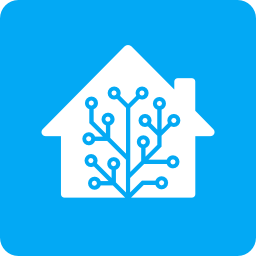The gh thread is about the same laptop I linked in my other comment, on the arch wiki they link to some patches, maybe they work
- 0 Posts
- 137 Comments
The important part is the hardware id of the camera, you have to search for this, drivers and kernel modules use this number to check if they are needed:
8086:7d19I found a documented laptop with this camera: https://wiki.archlinux.org/title/Dell_XPS_16_(9640)#Webcam
They link to some patches there, it may work with that
As I see the date of the patch is this year March, I guess simply the laptop is too new. If you don’t want to fiddle, just switch to some rolling release distro, and the patches will be merged upstream soon. After a kernel update your camera will magically start working. This would be the easiest solution if you can live some more months without the camera.
Kamoso seems like the default one in KDE: https://apps.kde.org/kamoso/
Reboot than read dmesg. Start a camera app than read dmesg, journalctl. Reload the camera module with modprobe

 1·9 months ago
1·9 months agoAlso lower it in the DE settings. Are you on wayland?

 1·9 months ago
1·9 months agoWhy the benchmark is at 90fps? What happens if you lower your monitor refresh rate to 60?

 2·9 months ago
2·9 months agoJust my troubleshooting tips:
Can you run a benchmark, maybe this one, so we can see it it’s really a general thing not just something on that website? Also we can compare it to other computers, or you can see if changing a setting helps at all.
Can you see something strange in about:processes? Shift+Esc is its keyboard shortcut.
Can you try it in other browsers? Something Chrome like (Chromium, Brave, Vivaldi). Does this happen there as well?

 4·9 months ago
4·9 months ago1 up-down cycle doesn’t wear the battery, negligible. It would only count if you would do this every day. It’s recommended to calibrate a new battery

 2·9 months ago
2·9 months agoThat would be cheap! Home made laptops are expensive or huge and barely portable. If you want a bit better and thought out, check out MNT Reform laptops: https://www.cnx-software.com/2024/12/31/mnt-reform-next-open-source-rk3588-modular-12-5-inch-laptop/
It starts at $1100
- ARM
- Fully FOSS, with 3d printable parts
- They are thick, still look home built compared to mainstream laptops
- CEO is on Mastodon: https://mastodon.social/@mntmn
While Shelly wifi devices can use their cloud, it’s optional. By default cloud is disabled, you can even make them report to your own MQTT server.

 4·10 months ago
4·10 months agoWouldn’t it be better to replace the full rom at this point? You trust other parts but not the dialer?
What I’m trying to say, if you think your built in dialer is a spyware, it’s very likely other components of the rom could be spyware as well, and you don’t gain too much by replacing only this component.

 2·10 months ago
2·10 months agoWdym spyware? Isn’t the stock dialer comes from aosp and it’s open source? Or your rom doesn’t use that one?

 7·10 months ago
7·10 months agoHow can you be sure someone is not storing CSAM on your server, if it’s encrypted?
It sounds like storj from a decade ago, but you got at least some monopoly money for your storage there. I don’t follow what they are doing nowadays but it started similarly

 2·10 months ago
2·10 months agoYou can try the hosted version here: https://app.nocodb.com/

 5·10 months ago
5·10 months agoHave you checked nocode platforms/databases? It’s basically a cross section of a super powerful excel and a database manager. You can set up the way you want, link records from different tables, add images, files to “rows”, like excel on steroids. You don’t have to understand SQL at all, that’s why it’s called “no code”.
I use nocodb. Tried baserow before, but I didn’t like that a lot of basic features are not available in the foss version, in nocodb only some bells and whistles are behind a paywall and not available in the self hosted version
They are also called airtable clones, as airtable was the first well known platform like these.
Some other similars exist: https://alternativeto.net/software/airtable/?platform=self-hosted&feature=database-management
I will remember this when we will want to celebrate Easter in prison in a fancy way.

 3·11 months ago
3·11 months agoYou can get similar miners on any platform, where there is a marketplace or store with minimal oversight. Obviously you can target different demographics, but it’s not something special in vscode that made this specifically available here.
Or do you say the xz attack from last year was a “feature of linux” and linux shouldn’t be used by anyone?
The extension store of vscode is a godsend, but you can use the third party unofficial fully foss store unrelated of microsoft: https://open-vsx.org/ You can literally find an extensions for any workflows or languages, please show me another editor where you can find language support for mikrotik rsc script files, AND home assistant style yaml AND AutoCAD dialect of lisp called AutoLisp. Just picked 3 obscure I actually used in my life.

 8·11 months ago
8·11 months agoSherpa onnx is very good: https://k2-fsa.github.io/sherpa/onnx/tts/index.html
Apks are here: https://k2-fsa.github.io/sherpa/onnx/android/apk.html

 1·1 year ago
1·1 year agoWhat is PT?

Yepp, Hanlon’s razor: they are mostly just lazy and maybe incompetent, not necessarily evil, that’s just a side effect. E.g. in my country if you call them that you want to get out of CGNAT they’ll just do that for you. My IP haven’t changed in years, but I don’t pay for fix IP. But it may be different in each country, I have mostly good experiences with local ISPs here.